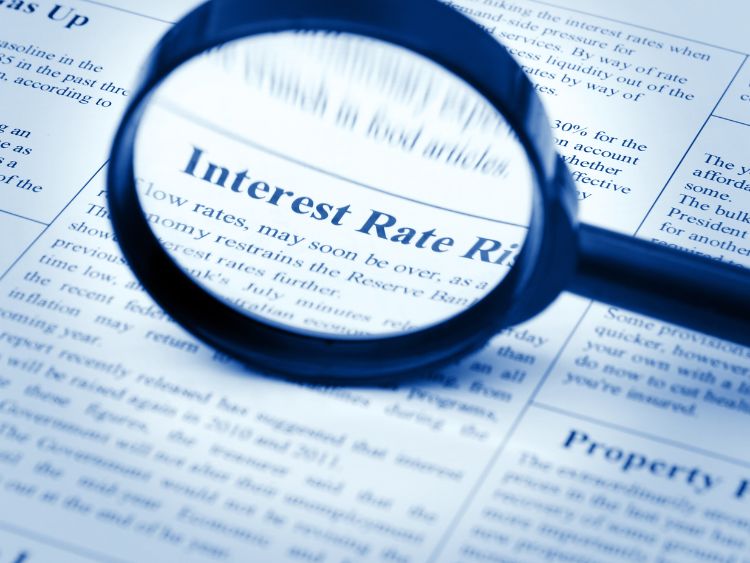When it comes to financing options for homeowners, home equity loans often top the list. But if you’re exploring this route, there’s one aspect that can make or break the deal: home equity loan rates. Whether you’re aiming to remodel your kitchen, cover educational expenses, or consolidate debt, understanding these rates and how they’re calculated can save you a bundle in the long run.
In this guide, we’ll dive into the essentials of home equity loan rates, including what they are, how they’re determined, and tips on securing the best rate possible.
What Are Home Equity Loan Rates?
Home equity loan rates refer to the interest charged on the money borrowed against the value of your home. Unlike your initial mortgage, a home equity loan allows you to tap into your home’s equity—meaning the difference between what you owe on your mortgage and your home’s current value.
This type of loan typically has a fixed interest rate, which means your monthly payments remain consistent throughout the life of the loan. Here’s why that’s significant:
- Fixed Rates Provide Predictability: With a fixed rate, you won’t have to worry about market fluctuations affecting your monthly payment. This makes budgeting easier and protects you from unexpected financial strain.
Key Factors That Impact Home Equity Loan Rates
Understanding what influences your home equity loan rate can help you anticipate what to expect from lenders. Here are the primary factors to keep in mind:
- Loan-to-Value (LTV) Ratio
Your LTV ratio measures how much equity you have in your home versus how much you want to borrow. A lower LTV ratio often translates to better loan rates, as it indicates a lower risk for lenders. - Credit Score
A high credit score can make a significant difference in the rate you’re offered. Most lenders reserve the best rates for borrowers with scores above 700. If your credit score is lower, you may still qualify but likely at a higher rate. - Market Conditions
Like all interest rates, home equity loan rates fluctuate with the economy. When the Federal Reserve adjusts its rates, lenders typically follow suit, which can impact your borrowing costs. - Loan Amount and Term
The size of your loan and its term length can also affect your interest rate. Generally, larger loan amounts or shorter terms come with more favorable rates. - Debt-to-Income (DTI) Ratio
Lenders look at your DTI ratio to assess your financial health. A lower DTI ratio—meaning less debt compared to your income—can result in a lower interest rate.
Fixed vs. Variable Rates: What’s Best for You?
Home equity loans often come with either fixed or variable rates, and each option has its pros and cons:
- Fixed Rates: As mentioned earlier, these provide a stable payment amount. Fixed rates are ideal for those who prefer predictable expenses and plan to keep the loan for its full term.
- Variable Rates: These rates can fluctuate based on the market, which means your monthly payments might increase or decrease. Variable rates often start lower than fixed rates, but they can rise over time. This option suits borrowers who may pay off the loan quickly or want to take advantage of low initial rates.
How to Secure the Best Home Equity Loan Rates
Finding the best home equity loan rates is possible if you follow a few strategic steps:
- Boost Your Credit Score
Paying down existing debt and ensuring timely payments can help improve your credit score, positioning you for a better rate. - Shop Around for Lenders
Different lenders offer varying rates and terms. It pays to research options from banks, credit unions, and online lenders to find the most competitive rates. - Consider Loan Terms Carefully
Shorter loan terms often come with lower rates. If you can afford a shorter repayment period, it may save you money in the long run. - Watch the Market
Keeping an eye on the Federal Reserve’s actions can help you time your loan application when rates are most favorable. - Negotiate Fees and Rates
Don’t hesitate to ask lenders if they can lower your rate or waive certain fees. You might be surprised by how willing they are to work with you, especially if you have a strong credit profile.
Common Questions About Home Equity Loan Rates
1. How do home equity loan rates compare to mortgage rates?
Typically, home equity loan rates are higher than initial mortgage rates. This is because lenders view secondary loans as slightly riskier, given they’re secondary to your primary mortgage.
2. Is it better to choose a fixed or variable rate for a home equity loan?
It depends on your financial situation and risk tolerance. A fixed rate offers stability, while a variable rate may start lower but could increase over time.
3. Can I get a home equity loan with a low credit score?
Yes, but it’s likely you’ll face a higher interest rate. Improving your credit before applying can help secure a better rate.
4. Are there fees associated with home equity loans?
Yes, common fees include appraisal fees, closing costs, and loan origination fees. Always ask your lender for a detailed breakdown of fees before signing.
5. How can I estimate my home equity loan rate?
Many lenders provide online calculators where you can input your credit score, LTV ratio, and other financial details to get an estimated rate.
Pros and Cons of Home Equity Loans
When considering a home equity loan, it’s essential to weigh the benefits and drawbacks:
Pros:
- Fixed Rates Available: Many home equity loans offer fixed rates, making budgeting easier.
- Access to Large Funds: You can often borrow a significant amount based on your home’s value.
- Interest May Be Tax Deductible: If used for home improvement, the interest might be deductible, which can lower the loan’s cost.
Cons:
- Higher Interest Rates Than Primary Mortgages: Home equity loans generally have higher rates than primary mortgages.
- Risk of Foreclosure: Since your home is collateral, failure to repay could result in foreclosure.
- Closing Costs and Fees: Many loans come with added fees, which can increase your total cost.
Comparing Home Equity Loan Rates with HELOCs
When exploring home equity options, you might also come across Home Equity Lines of Credit (HELOCs). Here’s a quick comparison to clarify the differences:
| Feature | Home Equity Loan | HELOC |
| Rate Type | Fixed or Variable | Usually Variable |
| Payment Type | Fixed Monthly Payments | Payments Vary |
| Funds Access | Lump Sum | Draw as Needed |
| Best For | Large, Planned Expenses | Flexible Spending |
A home equity loan provides a lump sum with a fixed repayment schedule, while a HELOC works more like a credit card with variable access to funds and payments.
Conclusion
Navigating home equity loan rates can feel overwhelming, but with the right information and strategy, you can secure a competitive rate that suits your financial goals. By improving your credit, shopping around, and understanding the difference between fixed and variable rates, you can make an informed choice that maximizes the value of your home equity.
Authoritative Sources
For further reading, here are some trusted resources:
- Federal Reserve Information on Interest Rates: www.federalreserve.gov
- Consumer Financial Protection Bureau (CFPB) Guide on Home Equity Loans: www.consumerfinance.gov
- National Credit Union Administration (NCUA) Loan Rates: www.ncua.gov



